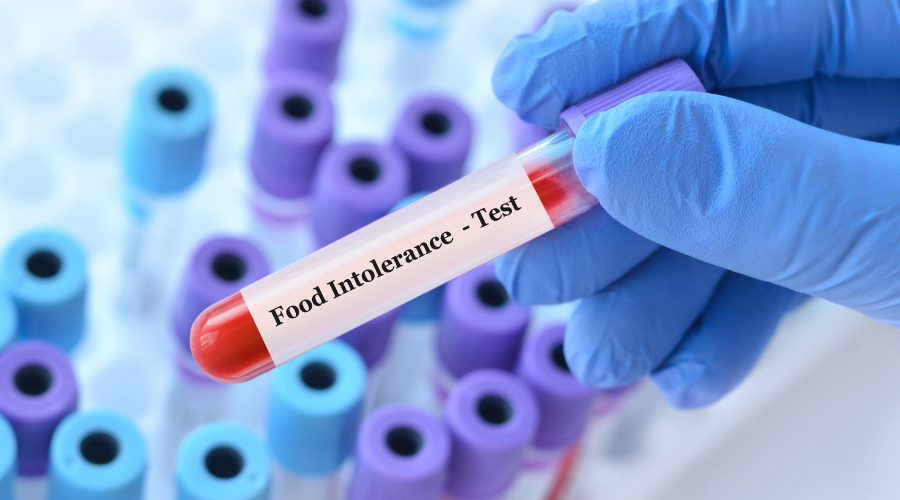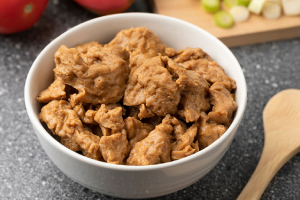

Feeling bloated after a salad? Tired after just having a toast? Or you are about to break up with your morning latte? If you are experiencing any of these, your body might be trying to tell you something! Yes, and that is nothing but food intolerance.
Did you know that the food you’re eating could be slowly sabotaging your health? This may happen even when you’re avoiding junk and only eating healthy foods like beans, eggs, or milk. So, if you’re someone who constantly feels bloated and fatigued without a plausible reason, it’s time to find the culprit in your plate. You can do so by taking food intolerance tests to pinpoint the foods causing discomfort. Swipe up to learn about food intolerance and discover tests for food intolerance to reclaim your health.
What is Food Intolerance and What Triggers it?
When your body is unable to properly process, digest, and absorb certain compounds in the foods, it results in physical symptoms such as flatulence, burping, bloating, etc., called food intolerance. It can happen due to the following reasons:
- Absence of Digestive Enzyme: When your body lacks certain digestive enzymes, it affects the breakdown of food properly, leading to digestive discomfort. For example, if you have insufficient lactase enzyme in your body, you can’t digest lactore in milk properly. This is called lactose intolerance.
- Irritable bowel syndrome (IBS): It is a gut-health problem that causes stomach cramps, constipation, or diarrhea, when you eat triggering foods such as spices, garlic, etc.
Note: “Food intolerance” is often interchangeably used in place of “food allergy” but MedlinePlus states that the two are very different. Here’s how:
- Intolerance of food, also referred to as “food sensitivity” is a digestion-related problem that triggers uncomfortable symptoms when you eat particular foods. For example, having gut disturbances when eating garlic, eggs, milk, etc. One common thing is gluten intolerance after eating wheat.
- Food allergy is an abnormal defensive reaction of the immune system as it mistakes certain foods to be critically harmful for the body. Food allergies can be life-threatening in some cases. Such as pollen allergy and nut allergy.
Symptoms of Food Intolerance
Here are some of the most common signs and symptoms of food intolerance:
- Gut causing bloating
- Gas/flatulence
- Irritable bowel syndrome (IBS)
- Diarrhoea
- Constipation
- Stomach pain
- Migraines
- Fatigue
- Swelling
- Mouth ulcers
- Acidity
- Nausea
- Vomiting
- Brain fog
Moreover, food intolerance can also lead to emotional symptoms that can affect your quality of life. These include:
- Anxiety
- Depression
- Mood swings
- Stress
Top Food Intolerance Tests
A food intolerance test is done to track down the foods that your body is sensitive to. There are many types of methods and tests your healthcare provider may deem fit to figure out your food intolerance. Take a look:
Food Journaling: Keeping a food journal can help you notice the symptoms that occur after you consume certain types of foods. You can use smart apps to conveniently track symptoms and diet habits.
Elimination Diet: Elimination diet works by removing suspect foods like milk, eggs, nuts, soy , etc., that are commonly led to gastrointestinal issues.
Blood Test: Blood tests are done to check the immunoglobulin G (IgG) antibody binding activity, which helps understand how much the immune system is reacting to a particular food as a marker of tolerance. The IgG food intolerance tests such as gluten sensitivity test that may be recommended to you by your doctor based on the suspected trigger.
Stool Acidity Test: This test is done to check the presence of acids in the stool sample and undigested lactose to identify the intolerance.
Gut Microbial Profiling: This test examines microbiome balances in the gut to provide personalised recommendations for food intolerance reversal.
Natural Substances That Lead to Food Intolerance
Here is a list of some of the commonly known substances that can make a food intolerable for you. Take a look:
| Intolerable Compound | Food Source |
| Lactose | Milk, dairy products |
| Gluten | Wheat, oats, rye, barley, |
| Fructose | Honey, fruits, sweetened beverages |
| FODMAPs | Garlic, onions, apples, beans, dairy |
| Salicylates | Broccoli, cauliflower, mushroom, radish, spinach zucchini |
| Tannins | Tea, coffee, berries, grapes, chocolates, wine, beans |
| Protein | Beans, grams, pulses, legumes |
How to Cope with Food Intolerance?
Food intolerance can last lifelong. Although it can be inconveniencing but here are some ways that can help you cope with the symptoms:
- Switch to Alternatives: Try alternative foods that are free from triggering compounds. Like may go for gluten-free gains, lactose-free dairy products, coconut milk, etc.
- Cook food properly: Cook protein-rich foods like beans properly before consumption to aid in digestion.
- Build Tolerance: Avoiding the food for a certain time can relieve symptoms. Experts also recommend reintroducing the same foods in small quantities to build tolerance over time. Do it under the guidance of an expert to avoid flare-ups.
- Seek Support: Consult a doctor regarding your symptoms and get a personalised diet guidance along with valuable tips to cope.
Read More: Are You Dealing with Gluten Intolerance? Here’s What You Need to Know
To Sum Up
Food intolerance can be checked with the help of food intolerance tests like blood test, skin prick test, stool acidity test, and more. Once you have it, you will need to eliminate the triggering food from your diet to manage symptoms. This is commonly a lifelong problem that you cope with by switching to safer food alternatives, cooking food properly, and re-introducing the foods to build tolerance. Make sure to consult a doctor before making major diet-related adjustments as avoiding too much food for too long can lead to nutritional deficiencies.




